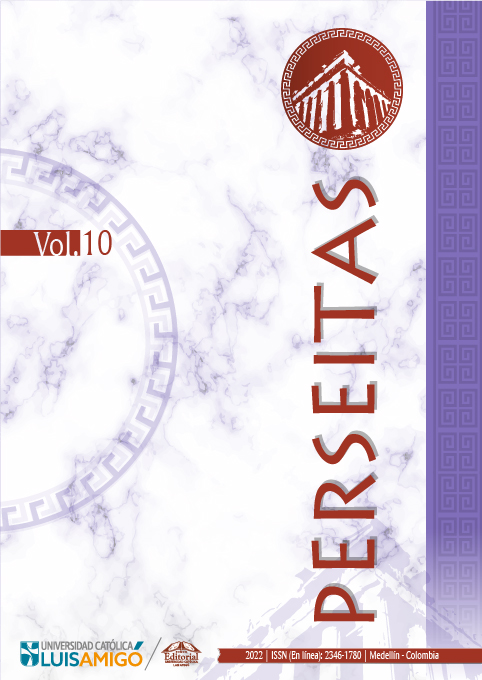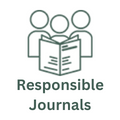Jesus Christ as a saturated phenomenon. A phenomenological approach to the Gospel of John based on the thought of Jean-Luc Marion
DOI:
https://doi.org/10.21501/23461780.4417Keywords:
Gospel of John, Phenomenicity, Saturated phenomenon, Jean-Luc Marion, Jesus Christ, Paradox of paradoxesAbstract
This paper aims to show how the French philosopher’s phenomenological description of the saturated phenomenon fits precisely into the characteristic Christology of the fourth Gospel. Based on the thought of this author, we will conclude that Jesus Christ, as the visible manifestation of the invisible God, concentrates in himself the four phenomenal paradoxes, appearing also according to the Johannine account as a “paradox of paradoxes” or as a “saturated phenomenon par excellence”.
Downloads
References
D. M. (1996). “I Am” in John’s Gospel. Literary Function, Background and Theological Implications [“Yo soy” en el Evangelio de Juan. Función literaria, antecedentes e implicaciones teológicas] (JSNT Sup 124).
Sheffield Academic Press.
Brown, R. E. (1999a). El Evangelio según Juan I – XII. (Vol. 1). Ediciones Cristiandad.
Brown, R. E. (1999b). El Evangelio según Juan XIII – XXI. (Vol. 2). Ediciones Cristiandad.
Brown, S. &, Moloney, F. J. (2017). Interpreting the Gospel and Letters of John. An Introduction [Interpretación del Evangelio y las Cartas de Juan. Una introducción]. William B. Eerdmans Publishing Company.
Card, M. (2014). John. The Gospel of Wisdom [Juan. El Evangelio de la Sabiduría]. Inter Varstity Press.
Carter, W. (2006). John: Storyteller, Interpreter, Evangelist [Juan: Narrador, Intérprete, Evangelista]. Hendrickson.
Culpepper, R. A. (1996). Reading Johannine Irony [Leyendo la ironía joánica]. En R. A. Culpepper & C. Clifton Black (Ed.), Exploring the Gospel of John. In honor of d. Moody Smith [Explorando el Evangelio de Juan. En honor a d. Moody Smith]. (pp. 193-207). Westminster John Knox Press.
Díaz Rodelas, J. M. (2004). Enviado. En F. Fernández Ramos (Dir.), Diccionario del Mundo Joánico. Evangelio – cartas – Apocalipsis (pp. 306-310). Monte Carmelo.
Fernández Ramos, F. (2004). Yo soy. En F. Fernández Ramos (Dir.), Diccionario del Mundo Joánico. Evangelio – cartas – Apocalipsis (pp. 1035-1037). Monte Carmelo.
Frey, J. (2018). Theology and History in the Fourth Gospel. Tradition and Narration [Teología e Historia en el Cuarto Evangelio. Tradición y Narración]. Baylor University Press.
Gieschen, C. A. (2018). The Divine Name that the Son Shares with the Father in the Gospel of John [El nombre divino que el Hijo comparte con el Padre en el Evangelio de Juan]. En B. Reynolds & G. Boccaccini (Ed.), Reading the Gospel of John’s Christology as Jewish Messianism. Royal, Prophetic, and Divine Messiahs [Leyendo la cristología del Evangelio de Juan como mesianismo judío. Mesías reales, proféticos y divinos]. (pp. 387-410). Brill.
Heidegger, M. (1993). Sein und Zeit [Ser y Tiempo]. Max Niemeyer.
Kant, I. (1781). Kritik der reinen Vernunft [Crítica de la Razón Pura]. Johann Friedrich Hartknoch.
Kant, I. (1787). Kritik der reinen Vernunft. Zweyte hin und weider verbesserte auflage [Crítica de la Razón Pura. Segunda edición mejorada]. Johann Friedrich Hartknoch.
Léon-Dufour, X. (1997). Lectura del Evangelio de Juan. Jn 1–4 (BEB 68). (Vol. I.). Sígueme.
Levinas, E. (1985). Le temps et l’autre [El tiempo y el otro]. PUF.
Marion, J-L. (1997). Étant donné. Essai d’une phénoménologie de la donation [Siendo dado. Ensayo para una fenomenología de la donación]. PUF.
Marion, J-L. (2001). De surcroît. Etudes sur les phénomènes saturés [En exceso. Estudio sobre los fenómenos saturados]. PUF.
Marion, J-L. (2005). Acerca de la donación. Una perspectiva fenomenológica. UNSAM.
Marion, J-L. (2010a). Certitudes negatives [Certezas negativas]. Grasset.
Marion, J-L. (2010b). Le croire pour le voir [Creer para ver]. Parole et Silence.
Marion, J-L. (2016). Givenness and Revelation [Donación y revelación]. Oxford University Press.
Marion, J-L. (2020). D’ailleurs, la révélation [Además, la revelación]. Grasset & Fasquelle.
Mateos, J. &, Barreto, J. (1980). Vocabulario Teológico del Evangelio de Juan. Ediciones Cristiandad.
McGrath, J. F. (2001). John’s Apologetic Christology. Legitimation and Development in Johannine Christology [La cristología apologética de Juan. Legitimación y desarrollo en la cristología joánica]. Cambridge University Press.
Nueva Biblia de Jerusalén. (1999).
O’grady, J. F. (2007). The Prologue and Chapter 17 of the Gospel of John [El prólogo y el capítulo 17 del Evangelio de Juan]. En T. Thatcher (Ed.), What We Have Heard from the Beginning. The Past, Present, and Future of Johannine Studies [Lo que hemos escuchado desde el principio. El pasado, presente y futuro de los estudios joánicos] (pp. 217-221). Baylor University Press.
Porcel, M. (2019). La teología mística y el des-conocimiento de Dios. Aporía Revista Internacional de Investigaciones Filosóficas, (2), 156-174. https://doi.org/10.7764/aporia.2.1625
Ramos Pérez, F. (2004). Ver a Jesús y sus signos, y creer en Él. Estudio exegético-teológico de la relación “ver y creer” en el Evangelio según san Juan. Pontificia Università Gregoriana.
Rengstorf, K. H. (1965). ἀποστελλω (πέμπω) [Enviar]. En G. Kittel (ed.), Grande Lessico del Nuovo Testamento [Gran léxico del Nuevo Testamento] (pp. 1081-1086). Paideia.
Sevrin, J. M. (2011). Le Jésus du quatrième évangile [El Jesús del cuarto evangelio]. Desclée.
Smith, D. M. (1995). The Theology of the Gospel of John [La teología del Evangelio de Juan]. Cambridge University Press.
Tuñí Vancells, J. O. (2011). El don de la verdad (Jn 1,17). El Evangelio según Juan como revelación de Jesús. Sal Terrae.
Van Der Watt, J. (2007). An Introduction to the Johannine Gospel and Letters [Introducción al Evangelio y a las Cartas de Juan]. T&T Clark.
Viviano, B. T. (1998). The Structure of the Prologue of John [La estructura del prólogo de Juan] (1:1-18): A Note. Revue Biblique, 105 (2), 183-184. https://www.jstor.org/stable/44089377
Wright, A. Z. (2020). Jesus, the λόγος, and Recognition: a Study of Concealed and Revealed Identity in John’s Gospel [Jesús, el Logos y el reconocimiento: un estudio de la identidad oculta y revelada en el Evangelio de Juan]. En S.E. Porter & A.W. Pitts (Ed.), Johannine Christology [Cristología joánica] (Vol. 3) (pp. 186-202). Brill.
Published
How to Cite
Issue
Section
License

This work is licensed under a Creative Commons Attribution-NonCommercial-NoDerivatives 4.0 International License.
La revista y los textos individuales que en esta se divulgan están protegidos por las leyes de copyright y por los términos y condiciones de la Licencia Creative Commons Atribución-No Comercial-Sin Derivar 4.0 Internacional.
















